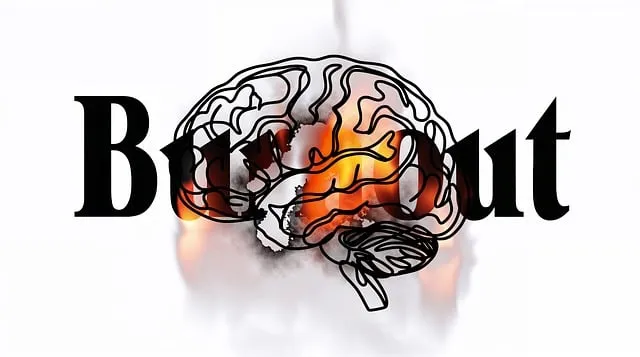Crisis Intervention Teams (CITs) at Kaiser Permanente Mental Health in Broomfield are pivotal for enhancing community safety and improving mental health outcomes. Their specialized training combines theoretical learning with practical skills through role-playing and interactive workshops, empowering healthcare workers to manage diverse psychological emergencies effectively. This approach not only improves patient outcomes but also strengthens the organization's mental health policy analysis and advocacy. Key components include active listening, empathy, de-escalation techniques, self-awareness exercises, community outreach, and public awareness campaigns. Simulations and ongoing support, including peer networks, self-care practices, and reflective debriefings, ensure the team remains resilient and effective in high-pressure situations, benefiting both the team and the community they serve.
“Crisis intervention teams (CITs) play a pivotal role in mental health care, providing immediate support during acute crises. This article explores the essential components of effective CIT training, using Kaiser Permanente’s approach in Broomfield as a case study. We delve into key skills, strategies, and innovative techniques like simulations and role-playing that empower teams to handle crises successfully. Furthermore, we discuss post-training support and continuous improvement strategies to ensure long-term impact, focusing on best practices from Kaiser Permanente’s mental health services in Broomfield.”
- Understanding Crisis Intervention Teams: A Key Component in Mental Health Care
- Kaiser Permanente's Approach to Training: Broomfield as a Case Study
- Essential Skills and Strategies for Effective Crisis Intervention
- The Role of Simulations and Role-Playing in Team Training
- Continuous Improvement and Support Post-Training: Ensuring Long-Term Impact
Understanding Crisis Intervention Teams: A Key Component in Mental Health Care

Crisis Intervention Teams (CITs) are a vital component of mental health care systems, providing rapid and effective support to individuals in distress. These teams, often comprising mental health professionals, paramedics, and law enforcement officers, are trained to handle a range of critical situations, from suicide attempts to violent outbursts. At Kaiser Permanente Mental Health in Broomfield, CIT training programs have become an essential part of their approach to fostering mental wellness.
These specialized training sessions equip team members with the skills to assess, de-escalate, and intervene during crisis situations, promoting safer communities and improved mental health outcomes. The program’s focus on collaborative care, burnout prevention, and evidence-based practices aligns with the latest recommendations in the Mental Wellness Podcast Series Production, ensuring that professionals are equipped to handle today’s complex challenges.
Kaiser Permanente's Approach to Training: Broomfield as a Case Study

Kaiser Permanente, a leading healthcare provider, has established an innovative approach to crisis intervention team (CIT) training, with its facility in Broomfield serving as a shining example. The program focuses on empowering mental health professionals through comprehensive training that combines theoretical knowledge and practical skills. In this setting, participants gain a deep understanding of effective communication strategies, crucial for de-escalating high-stress situations.
The CIT training at Kaiser Permanente goes beyond traditional education by incorporating role-playing scenarios and interactive workshops. These sessions simulate real-life crisis situations, allowing professionals to practice risk assessment for mental health issues and learn specialized interventions. The case study of Broomfield demonstrates how this approach ensures that healthcare workers are equipped to handle a wide range of psychological emergencies, thereby improving patient outcomes and enhancing the overall mental health policy analysis and advocacy within the organization.
Essential Skills and Strategies for Effective Crisis Intervention

Effective crisis intervention requires a unique blend of skills and strategies to navigate highly charged situations. Trained professionals at Kaiser Permanente mental health Broomfield emphasize active listening, empathy, and de-escalation techniques as foundational elements. By cultivating self-awareness exercises, team members learn to recognize their own emotional responses and manage them effectively, preventing potential escalations. This self-regulation is crucial when interacting with individuals in crisis.
Furthermore, successful intervention often involves building rapport and establishing trust quickly. The Community Outreach Program Implementation plays a vital role in fostering connections within the community, ensuring that at-risk individuals feel supported and less isolated. Public Awareness Campaigns Development aimed at breaking down stigma surrounding mental health crises are also integral to creating an environment where help is sought sooner rather than later.
The Role of Simulations and Role-Playing in Team Training

Simulations and role-playing exercises play a pivotal role in crisis intervention team training programs, offering an immersive experience that goes beyond traditional classroom instruction. These interactive methods allow participants at Kaiser Permanente mental health Broomfield to practice their skills in safe, controlled environments, mimicking real-life crisis scenarios. By stepping into different roles within a simulated situation, team members gain valuable insights into how their actions and communications impact overall response effectiveness.
Through dynamic role-playing, the team can explore various aspects of trauma support services, public awareness campaigns development, and fostering positive thinking in individuals facing mental health crises. This hands-on approach not only enhances problem-solving skills but also improves interpersonal dynamics and coordination among team members. The exercises help break down barriers, foster empathy, and ensure everyone involved is prepared to handle diverse and complex situations with compassion and professionalism.
Continuous Improvement and Support Post-Training: Ensuring Long-Term Impact

After completing crisis intervention team training, ongoing support and continuous improvement are crucial to ensure the long-term impact of these programs. Organizations like Kaiser Permanente mental health in Broomfield understand that fostering a culture of resilience and emotional well-being requires sustained effort. They offer ongoing resources, such as peer support networks, where team members can debrief, reflect on their experiences, and learn from one another.
Additionally, encouraging self-care practices like Stress Management, Mindfulness Meditation, and Compassion Cultivation can help crisis intervention teams maintain their composure and effectiveness in high-pressure situations. By integrating these techniques into daily routines, individuals build resilience, enhance emotional intelligence, and contribute to a more supportive work environment, ultimately benefiting both the team and the community they serve.
Crisis intervention team training programs, such as those implemented by Kaiser Permanente in Broomfield, are vital for enhancing mental health care. By equipping teams with essential skills and strategies, simulations, and continuous support, these programs ensure a more effective and efficient response to crises. Drawing on the success of initiatives like Broomfield’s, organizations across the country can improve their approach to mental health care, ultimately fostering better outcomes for those in need.






